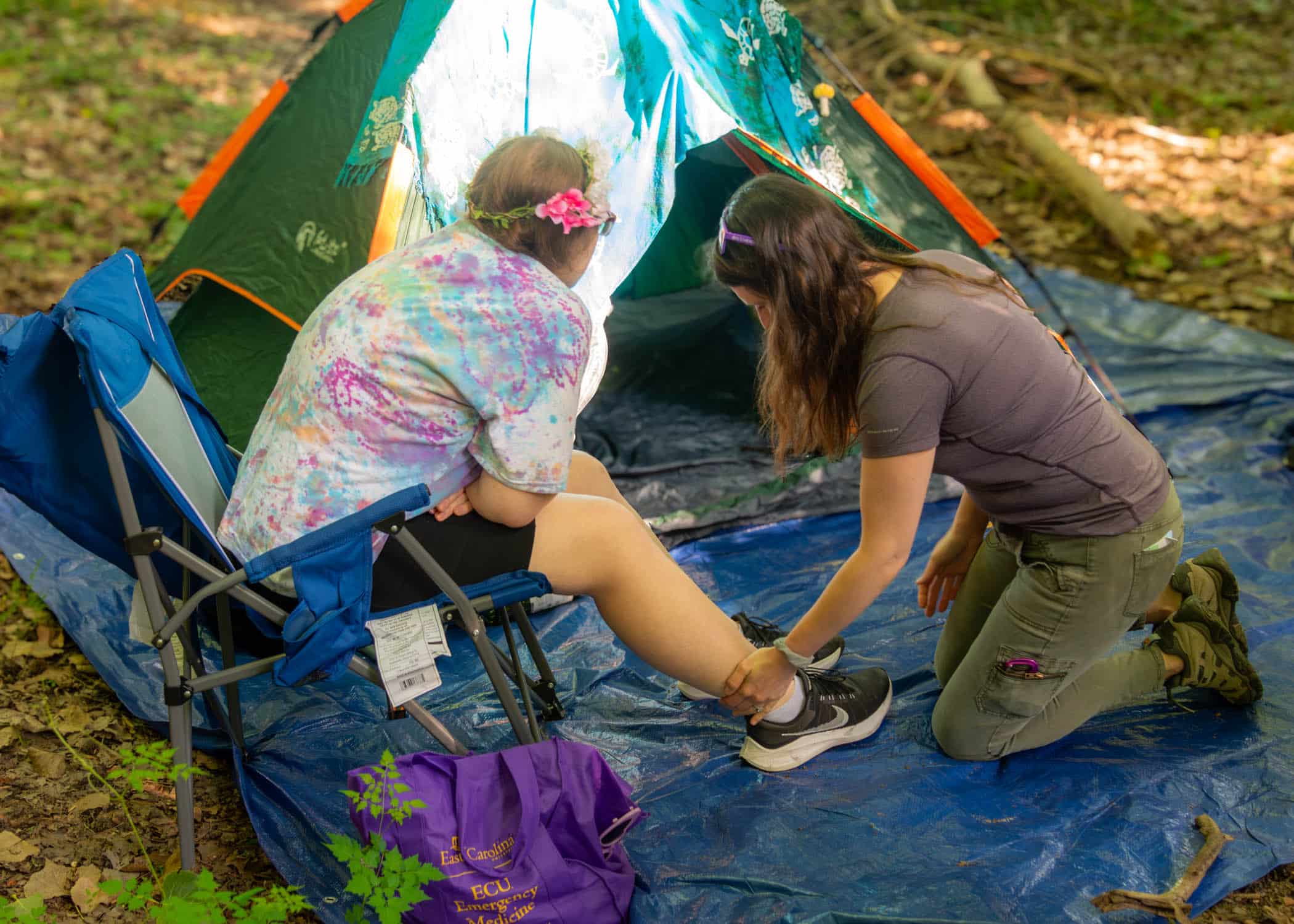ECU Health emergency medicine residents took time away from their regular Wednesday morning classroom sessions and dove into an Emergency Medicine Wilderness Day exercise at Wildwood Park in Greenville.
On May 29, about 20 emergency medicine residents spent their morning in small groups, walking around the park and encountering “patients” with different ailments. From poisoning to animal attacks and drowning scenarios to firework accidents, the experience helped residents prepare for real-world scenarios and eventual board exams. Residents received real-time instruction and feedback from the Brody School of Medicine at East Carolina University faculty as they worked through their training.
The patients for this exercise were standardized patients from Brody’s Office of Clinical Skills Assessment and Education. Standardized patients are trained to mimic real patients so that students can learn. Their role is to help prepare future health care professionals for a variety of patient interfaces.

Dr. Sarah Thead is a second-year emergency medicine resident at ECU Health and said she’s attended the training the last two years and has benefited from the experience.
“It’s a great educational experience every time we do this,” Dr. Thead said. “It’s scenario-based and our faculty try to set up the scenarios similar to how they’ll be set up on our oral board exams, so it’s a fun experience but also really important from an educational perspective as well.”
She said the scenarios change from year to year which helps her and her co-residents as they try to work together and think quickly to help patients experiencing a medical emergency.
Dr. Jennifer M. Bennett, an emergency medicine physician at ECU Health, clinical assistant professor of emergency medicine and medical director of the Simulation Center at Brody, said this kind of exercise is important for a number of reasons.
“It’s a great opportunity to demonstrate how we can all work together, even outside of the emergency department. It’s important to work on these skills in a different environment,” Dr. Bennett said. “It’s also a good opportunity to have some team bonding for the residents. Just getting them out for a day and letting them do something a little bit different, getting them out in the sun, that’s a positive as well.”
Dr. Bennett said having Wildwood Park available to run this exercise has helped this program thrive over the last three years.
Along with Dr. Bennett, Dr. Jennifer Parker-Cote, assistant professor of emergency medicine at Brody, helped to create the simulation and organize the event.
In Dr. Parker-Cote’s simulation, residents had to assess a camper who had ingested a toxic mushroom in the woods. Residents assessed the standardized patient, asked about the patient’s medical history and made recommendations on next steps for care.
“These scenarios allow residents to apply the knowledge they’ve gained through their residency and apply it to real world situations and permits them to improvise in wilderness medicine, which you have to do a lot of times,” Dr. Parker-Cote said. “It’s important to put them through these simulations and have them think critically while working together and trying to move quickly to help our standardized patients.”

The training is another example of the valued partnership between ECU Health and Brody. Residents at an academic health system like ECU Health have support and resources for continued education from faculty and the Interprofessional Clinical Simulation Program at Brody, enriching their clinical training experience. Residents participate in trainings like this to prepare for real situations with real patients both behind the walls of the hospital and out in the community.